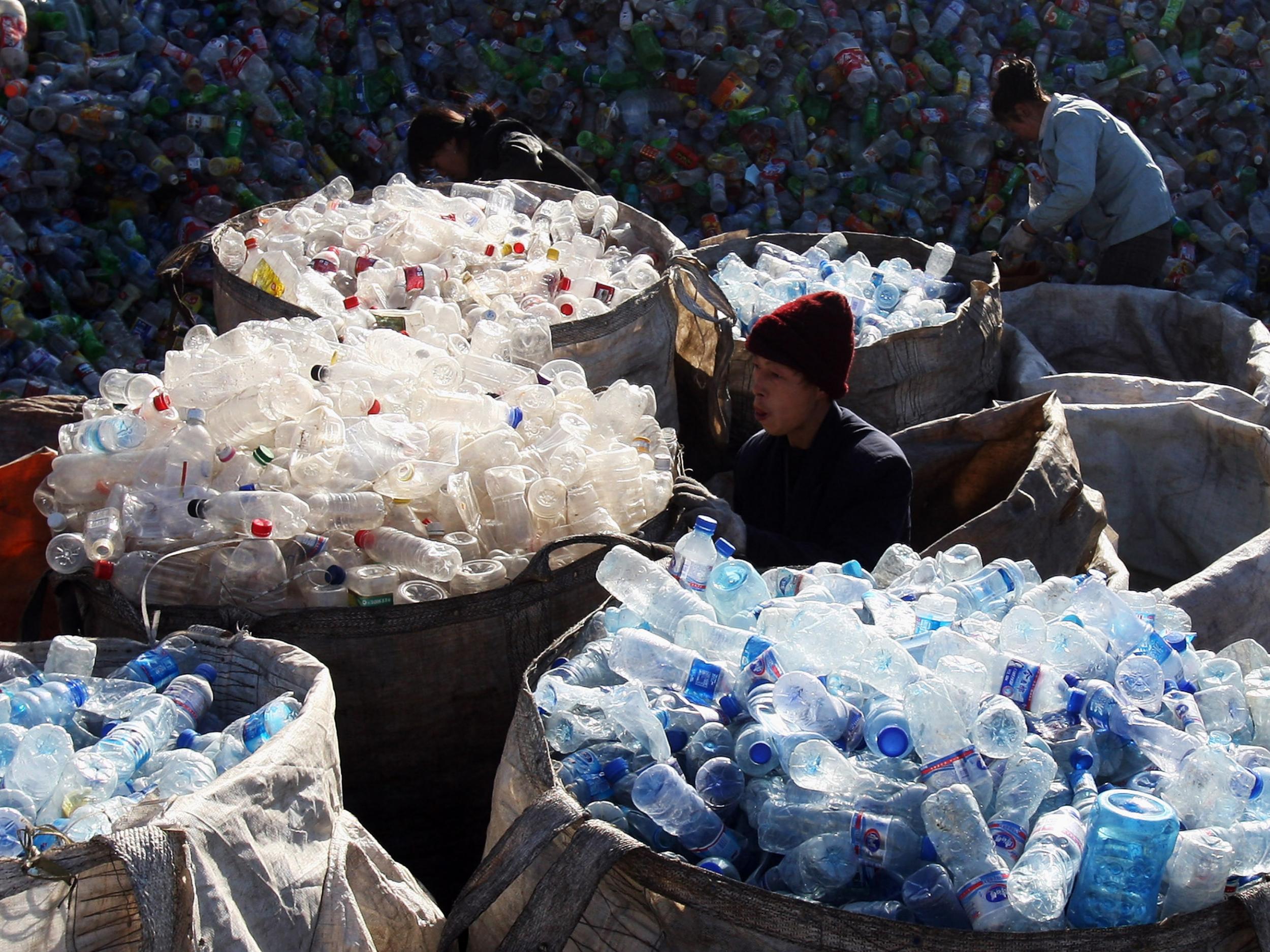UK now exporting more waste to countries with highest levels of ocean plastic pollution
'Instead of just moving our plastic scrap around the globe, we should turn off the tap at the source,' say campaigners

The ban on plastic exports to China has seen the UK offloading its waste to nations with questionable records on marine pollution.
In the four months since the ban came into force waste being exported to Malaysia more than trebled, making it the main destination for British plastics.
Exports to Vietnam increased by 50 per cent, while the amount sent to Thailand shot up fifty-fold.
All three countries have the unfortunate distinction of being in the top 10 for quantity of plastic waste entering the ocean, with Vietnam, the highest-placed of the three, in fourth place.
The ranking comes from a report published in the journal Science in 2015, which provides the best estimates currently available of the quantity of inadequately disposed plastics ending up as marine debris.
Plastic in the world’s oceans has emerged as a major environmental problem in recent months, with scientists and environmentalists highlighting its harmful effects on marine creatures.
Though the UK government has been vocal in its support of measures to reduce plastic usage, much of the waste currently circulating in the world’s oceans is thought to originate in developing countries with less effective waste management infrastructure.
The figures on UK waste exports were revealed in an investigation by Greenpeace, which also found that countries are now beginning to shut their doors to the sudden surge of British waste.
Along with Poland – another major plastic importer – the south-east Asian nations have all imposed limits on the amount of plastic waste they will import from abroad.
In Poland, a series of fires at dumps led to the country placing new restrictions on the amount of foreign waste coming in.
Polish interior minister Joachim Brudzinski said the China ban had caused an “increase in illegal imports to Poland of materials that should not be in our country”.
Temporary bans have also been brought in across Vietnam, Thailand and Malaysia following backlogs of plastic imports at ports.
After China’s announcement that it would no longer accept “foreign garbage”, environment secretary Michael Gove said the country had to “stop offshoring our dirt” and deal with its plastic waste at home.
Since then there has been a drop of 17 per cent in waste being exported, but the vast majority is still being sent abroad.
Simon Ellin, chief executive of the Recycling Association, warned in December that the Chinese ban would be a “game changer for the UK”.
In response to the news about nations blocking imports of waste, Mr Ellin said the sector would continue “lurching from crisis to crisis” until new recycling infrastructure is developed.

Adam Read, external affairs director at waste firm Suez said: “There is always a risk that other countries start to get flooded and close their doors.
“That’s an inevitability of moving millions of tonnes out of China and dumping it on the global market.
“We don’t know how much material is circling the globe. Everything in the supply chain has changed in the last 12 months. The risk to the UK is that low grade plastic, poorly sorted, contaminated, or degraded, could become hard to place anywhere.”
Labour MP and member of the Environmental Audit Committee, Kerry McCarthy said: “I thought the China ban would bring the government to its senses in demonstrating we could no long rely on exporting our plastic waste.
“But instead the minister… challenged the view of this as a crisis, and left it to the market to find alternative export markets.”
Greenpeace UK ocean plastic campaigner Fiona Nicholls said: “Sweeping our waste under someone else’s carpet is not the solution to Britain’s plastic problem.
“Instead of just moving our plastic scrap around the globe, we should turn off the tap at the source. The industry is churning out single-use plastic at an alarming rate, with global production set to quadruple by 2050 – that’s clearly more than our recycling system can cope with.”
A spokesperson for the Department for Environment, Food and Rural Affairs said the government’s ambition “was to handle more of our waste in the UK” and that “in the short term, alternative markets have been found in response to the China restrictions including Malaysia, Turkey and India”.
Join our commenting forum
Join thought-provoking conversations, follow other Independent readers and see their replies
Comments
Bookmark popover
Removed from bookmarks